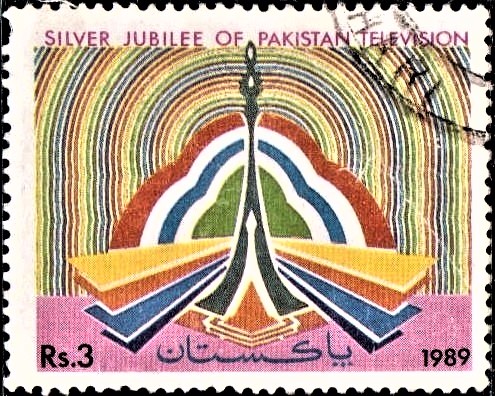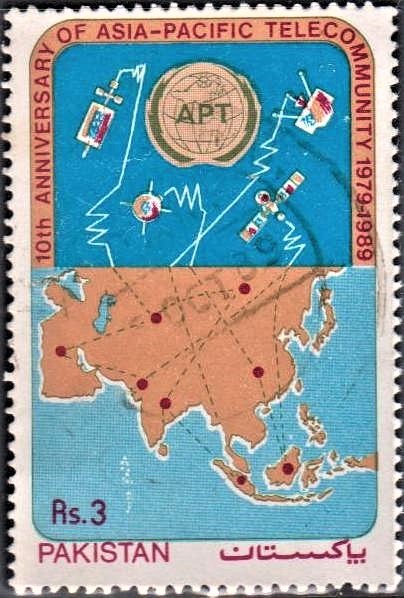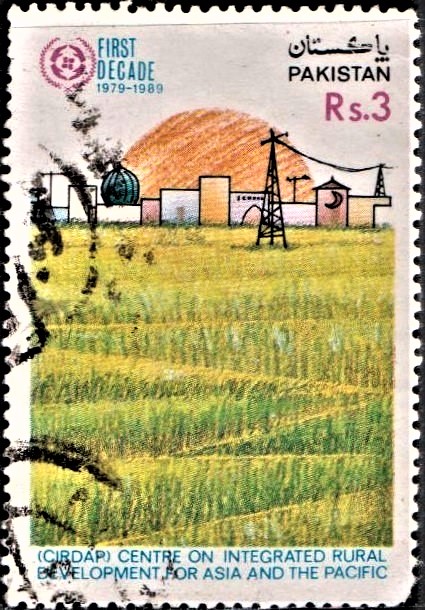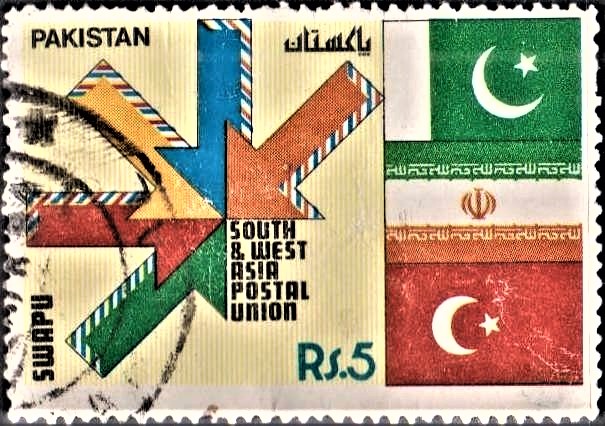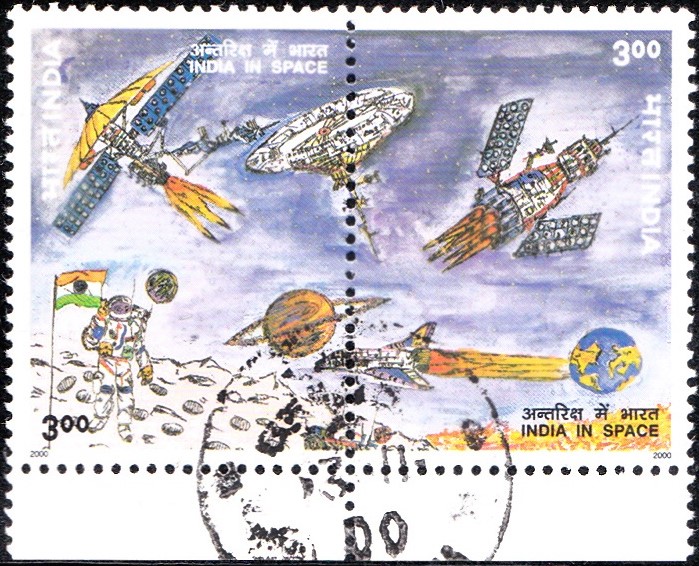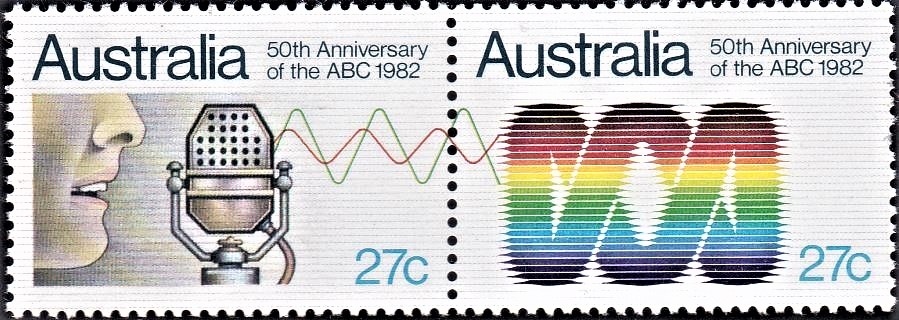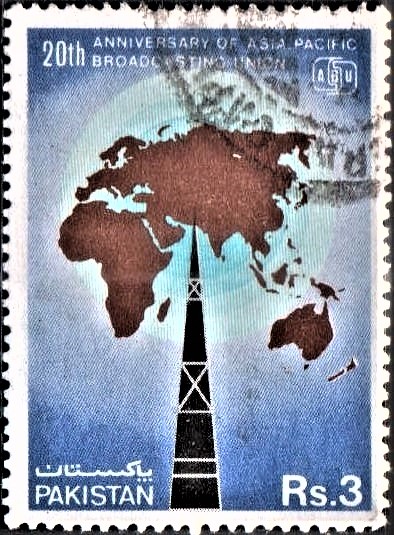
Pakistan on Asia-Pacific Broadcasting Union
A commemorative postage stamp on the 20th Anniversary of Asia–Pacific Broadcasting Union (ABU), a non-profit, professional association of broadcasting organisations :
 Issued by Pakistan
Issued by Pakistan
Issued on Jul 1, 1984
Issued for : To mark the 20th Anniversary of ABU, Pakistan Post Office is issuing a commemorative postage stamp of Rs. 3/- denomination on July 1, 1984.
Designer : Jadeen Sultana
Type : Stamp, Postal Used
Denomination : Re. 3/-
Colours : Brown, turquoise blue, black and blue
Size of Stamp : 32.50 x 44.50 mm
Size of Print : 29.0 x 41.0 mm
Perforation : 13 C
Quantity : 500,000
No. of stamps on a sheet : 50 (Fifty)
Process of printing : Litho Offset
Printers : Pakistan Security Printing Corporation
About :
- The Asia-Pacific Broadcasting Union (ABU) was established on July 1, 1964 in the wake of the decisions taken in five Asian Broadcasters’ conferences held between 1957 and 1963 at the initiative of the Japan Broadcasting Corporation. It covers about two-fifths of the world’s circumference and contains nearly two-thirds of its population & provides an avenue for professional broadcasters in developing countries to cooperate and collaborate irrespective of political, racial or religious affiliation.
- Presently, the ABU is composed of 67 members; 49 of them are situated in the ABU region from 33 countries and 18 associate members from eleven countries in other parts of the world.
- The supreme body of the ABU is General Assembly which meets annually. Another main organ of ABU is the Administrative Council which comprises 13 members. This Council meets twice a year. The Secretariat is responsible for carrying out the decisions of the General Assembly and Administrative Council and provides services to members.
- The programme services of the ABU is responsible for the maintenance and operation of the Satellite Coordination Centre (SCC). The SCC enables members to share Satellite transmission costs by arranging multilateral receptions and to obtain favourable tariff rates. It also conducts investigations to promote the use of Communication Satellites by members.
- The vast time difference between countries in the region and satellite access conditions enabled Radio Television Malaysia (RTM) and Nippon Hoso Kyokai, Japan (NHK) to establish in 1984 two TV news exchanges often referred to as “Asiavision”. These two news centres gather news from each other and from other regions of the world including those from “Eurovision”.
- The collective acquisition of television rights for international sport events or events in which five or more members indicate an interest, is an important activity of the Union in protecting and promoting the interests of ABU members which operate a television service.
- The ABU is actively involved in promoting programme exchanges through various forms of co-production. “The Living Heritages of Asia”, “Living Artists in Asia and the Pacific” and “Children in Asia/Pacific” are the most recent examples of co-production programmes in which cultural traditions developed many centuries ago and living issues of the respective societies were depicted.
- The Technical Centre of the ABU coordinates the activities relating to technical and engineering studies carried out by the ABU member-organisations concerning broadcasting both in sound and television. Technical seminars are arranged from time to time on important subjects of topical interest. The technical centre publishes technical monographs based on studies undertaken by the ABU.
- The ABU established the Asia–Pacific Institute for Broadcasting Development (AIBD), a regional body with its headquarters in Kuala Lumpur, with the assistance of UNESCO and the Malaysian Government to provide the advance training facilities to the broadcasting staff of ABU members.
- Two publications, the ABU Newsletter and ABU Technical Review are produced bi-monthly by the Secretariat of ABU.
- Issued by: The Director General, Pakistan Post Office, Islamabad.
Subscribe
Login
0 Comments
Oldest


